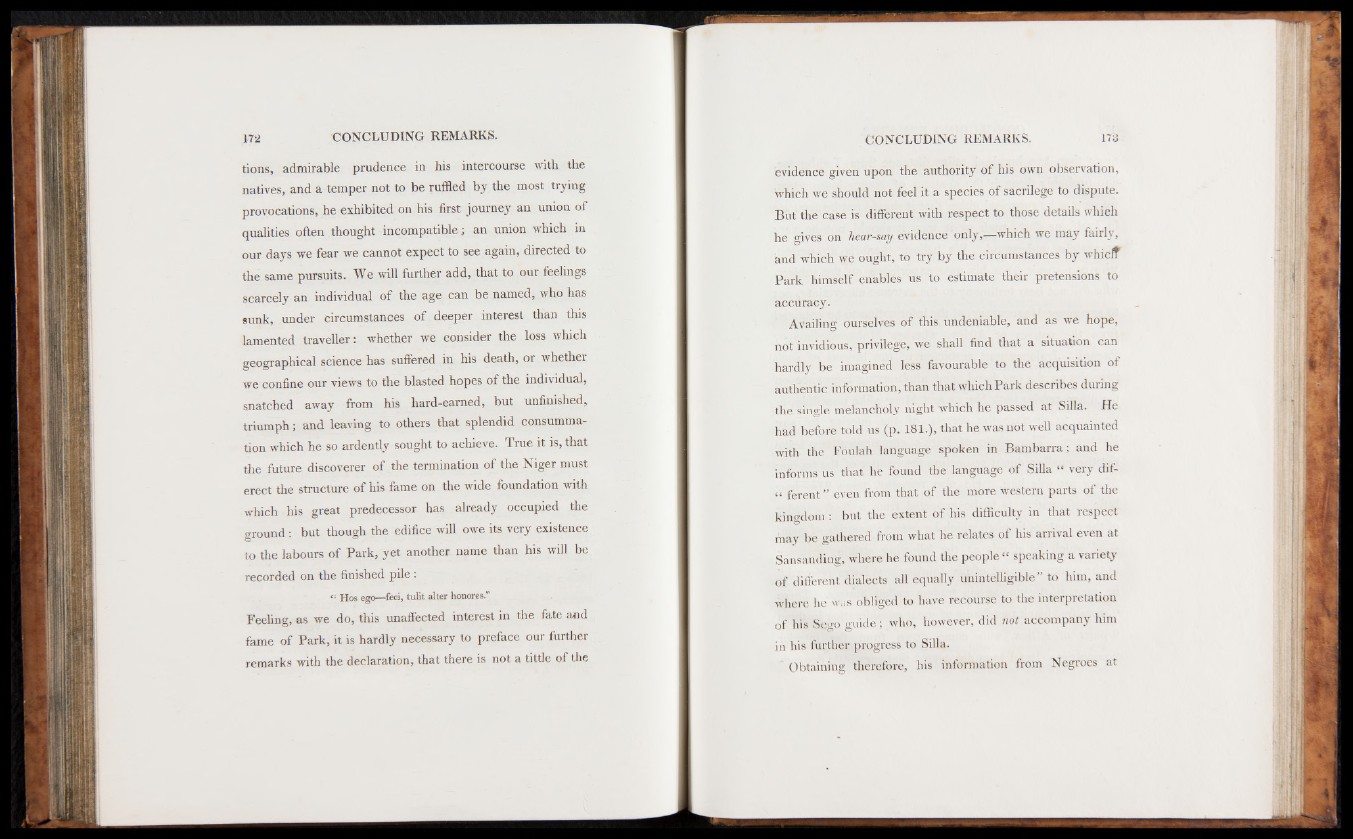
tions, admirable prudence in his intercourse with the
natives, and a temper not to be ruffled by the most trying
provocations, he exhibited on his first journey an union of
qualities often thought incompatible; an union which in
our days we fear we cannot expect to see again, directed to
the same pursuits. We will further add, that to our feelings
scarcely an individual of the age can be named, who has
sunk, under circumstances of deeper interest than this
lamented traveller: whether we consider the loss which
geographical science has suffered in his death, or whether
we confine our views to the blasted hopes of the individual,
snatched away from his hard-earned, but unfinished,
triumph; and leaving to others that splendid consummation
which he so ardently sought to achieve. True it is, that
the future discoverer of the termination of the Niger must
erect the structure of his fame on the wide foundation with
which his great predecessor has already occupied the
ground: but though the edifice will owe its very existence
to the labours of Park, yet another name than his will be
recorded on the finished pile:
“ Hos ego—feci, tulit alter honores.”
Feeling, as we do, this unaffected interest in the fate and
fame of Park, it is hardly necessary to preface our further
remarks with the declaration, that there is not a tittle of the
evidence given upon the authority of his own observation,
which we should not feel it a species of sacrilege to dispute.
But the case is different with respect to those details which
he gives on hearsay evidence only,—which we may fairly,
and which we ought, to try by the circumstances by whicff
Park himself enables us to estimate their pretensions to
accuracy.
Availing ourselves of this undeniable, and as we hope,
not invidious, privilege, we shall find that a situation can
hardly be imagined less favourable to the acquisition of
authentic information, than that which Park describes during
the single melancholy night which he passed at Silla. He
had before told us (p. 181.), that he was not well acquainted
with the Foulah language spoken in Bambarra; and he
informs us that he found the language of Silla “ very dif-
“ ferent” even from that of the more western parts of the
kingdom : but the extent of his difficulty in that respect
may be gathered from what he relates of his arrival even at
Sansanding, where he found the people “ speaking a variety
of different dialects all equally unintelligible” to him, and
where he was obliged to have recourse to the interpretation
of his Sego guide; who, however, did not accompany him
in his further progress to Silla.
Obtaining therefore, his information from Negroes at